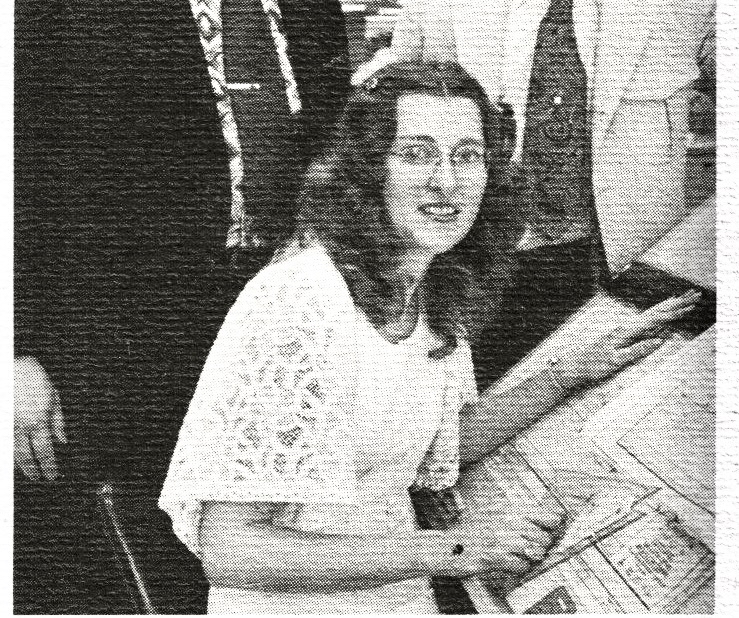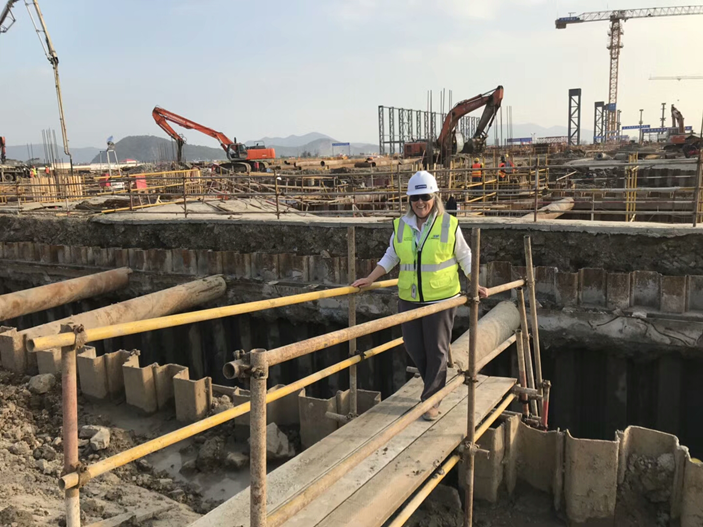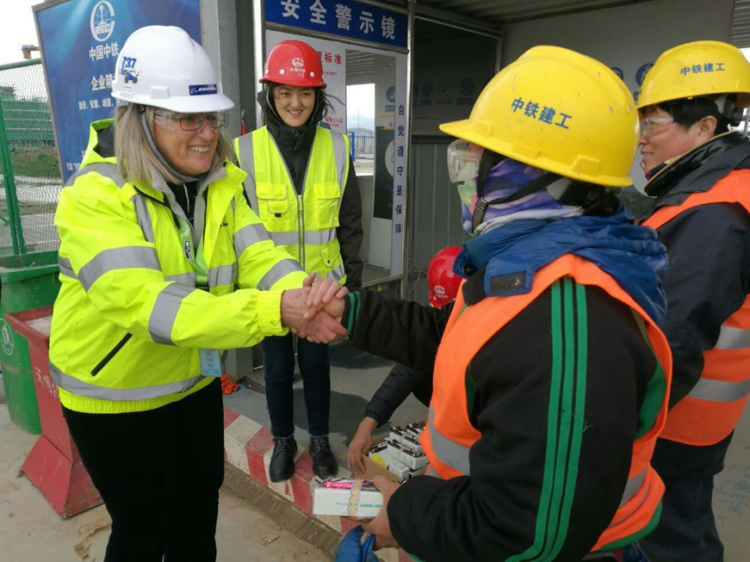In honor of Women’s History Month, we asked Teaching Assistant Professor, Darlene Septelka, to share her experience as a woman with 50 years of experience in the construction field.
Growing up, Darlene didn’t experience the gendering of toys. Her parents made no distinction between playing with trucks, blocks or Barbies. “I never felt like ‘girls don’t do that,’ or that I should be playing with dolls, or that there was a role I needed to portray.” One day her dad dumped a pile of sand in the backyard, and she spent hours building cities in it.
When Darlene was in junior high, a vocational school opened up in her district. Her parents felt that graduating with a practical skill was important, so she was one of the few women who enrolled. Darlene majored in electronics as one of just five girls in her graduating class. She then went on to technical college where she switched from electronics to civil engineering, and earned her associate’s degree.
“I always liked seeing how things were built.”
Being in the minority as a woman at her vocational school prepared her for a career in a male-dominated field.
Navigating a career in construction as a young woman
After graduating in 1972, Darlene worked as a draftsman in an apprentice program for a large architectural engineering firm in Boston. As the only woman in the program, she started to notice some of the issues in the industry that women would face. She remembers having to sit in the front of the open-floor office near the supervisor, because management thought she would be “a distraction.” Darlene didn’t want to stay at the drawing table, though – she wanted to get out in the field, and she wasn’t going to let the sexism she faced stop her. “I was told ‘there’s no role for you, other than if you want to be a secretary’.” When there were layoffs, a coworker said to her, “why aren’t you home having a baby, so another guy can have this job?”

For Darlene to get the field experience she wanted, she left Boston for Charlotte, North Carolina to work on a construction site. Darlene recalls being out doing an investigation on a nuclear power plant. “It was a huge construction site, and I remember going downstairs into a deep well in the basement where the mechanical equipment was. My responsibility was pipe support and ensuring the design would work. If it couldn’t, I had to design on the spot, head back up to the office, do a quick sketch, and send it to a California office who could run the calculation on it. While I was in the basement, some workers flushed a bunch of water down there and laughed.”
The lack of diversity and the defined gender roles in her first field experience led Darlene out of the south and back to New England. As she moved into leadership, she saw more issues emerge as a woman in that role.
Paving a path to the top
When it was time for the next opportunity, Darlene applied for a job at a nuclear power plant in Aberdeen, Washington. She was flown to New York for the interview. During the interview process, she found it unfair that she was tested on whether she could read drawings. She felt she had to go “the extra mile” to get hired, compared to male applicants. “When I was hired, the idea was that someone else was going to move up and I would take their position. But after I arrived, they had put another person with less supervisory experience in the role. I had to speak up and say ‘wait a minute, I traveled thousands of miles out here, based on a promise.’ I challenged them and I got the position.”

Even if it meant braving the freezing cold on the tide flats of New Hampshire doing welding inspections, Darlene always found a way to get the job done. And it earned her a promotion.
“You wanted to prove yourself and that you could do your work, so I ignored [the pushback] and did my job.”
There was a moment in Darlene’s career when she had to decide whether she had a future in this industry.
Thanks to the support of the late Steve Goldblatt, Darlene earned her bachelor’s degree from the University of Washington. She would spend the next 12 years working at Boeing, overseeing and managing construction projects. She remained connected to UW and later returned to get her Masters degree in Construction Management, becoming the first-ever graduate of the program.
She went on to become an Associate Professor at Washington State University, and taught for several years before returning to industry. She got a job working for King County on a water treatment plant project – and it was the first time her own manager was a woman.
Before retiring, she spent three years in China working on large projects as a construction director. “There are a lot of women working in the construction field, but to have a woman in a leadership position was atypical there,” she recalls.
Coming back to the classroom years later, Darlene was pleasantly surprised to see the increase in diversity in the department and field. “I remember teaching at WSU and not having one woman in my class.”
The next generation
She recognizes that it will take a while for the increased entry-level diversity to reach the executive level, but believes that the industry is changing.
She hopes that women considering Construction Management or currently studying it see the change they’re trying to make. “I graduated in ‘72, so this is the 50 year anniversary of me being in construction. When I was coming up in the field, I had to rely on my own resilience, working harder to prove myself. But it shouldn’t be like that.”
“If you have the passion, hold your head up high and do the best job you can do. Find your safe space, find your community to help you work through the challenges.”
